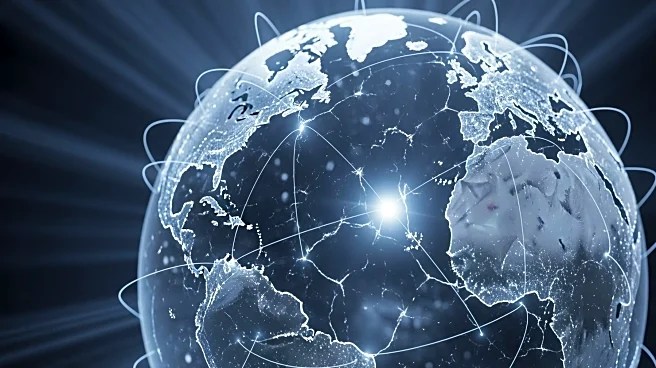What's Happening?
On October 25, 2025, widespread protests erupted across Iran, involving various sectors such as emergency medical personnel, bakers, and workers from the electricity distribution company. These protests were driven by grievances over delayed wages, government
incompetence, and corruption. In Mashhad, bakers protested outside the provincial governor's office due to unpaid government-promised subsidies, while in Ahvaz, electricity workers walked off the job due to hyperinflation affecting their wages. Additionally, workers at the Haft Tappeh Sugarcane complex and Ilam Petrochemical plant protested against corruption and unpaid wages. The protests reflect a broader dissatisfaction with the ruling theocracy's handling of economic and social issues.
Why It's Important?
The protests in Iran underscore significant economic and social challenges facing the country. The widespread nature of the demonstrations indicates deep-rooted issues within Iran's governance and economic management. The protests could lead to increased instability and pressure on the Iranian government to address corruption and improve living conditions. The dissatisfaction among essential workers and various industries highlights the potential for further unrest, which could impact Iran's economic stability and its relations with other countries. The situation also raises concerns about the government's ability to maintain control and address the needs of its citizens.
What's Next?
The ongoing protests may lead to further actions by the Iranian government to quell dissent and address the grievances of its citizens. Potential responses could include policy changes, economic reforms, or increased repression. The international community may also respond, potentially increasing diplomatic pressure on Iran to improve its human rights record and address corruption. The protests could also inspire similar movements in other regions, leading to broader implications for Iran's political landscape.
Beyond the Headlines
The protests in Iran highlight ethical and governance issues within the country, including the government's failure to provide basic services and economic stability. The widespread dissatisfaction among various sectors reflects a broader societal rejection of the current regime's policies and practices. The situation could lead to long-term shifts in Iran's political and economic systems, potentially affecting regional stability and international relations.















